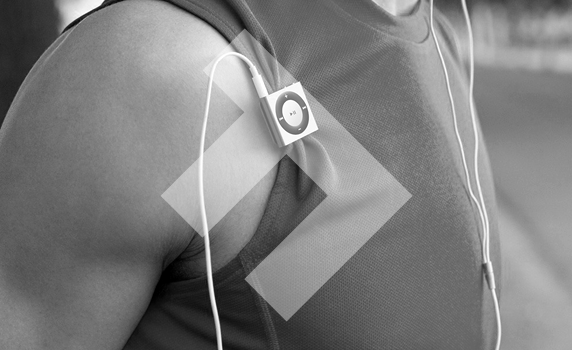Those of us who were alive in the 1980′s will remember how much the Walkman revolutionised our workouts. Running and walking were no longer boring, as we could take our favourite music along with us; at least, until the tape was chewed up and ruined. The Discman a few years later, whilst an advance in making our music portable, was no use for the serious exerciser, as the slightest movement caused the CD to jump, let alone taking them on a long run.
MP3 players might have been revolutionary in making our workouts less dull, but recent technology means that we can do anything from monitor our heart rates as we run – and make a call from our watch should our phone ring – to wearing workout gear that takes sweat away from our bodies before it can cause chafing or discomfort.
The advances have become mainstream very quickly; even five years ago, going out for a run meant a pedometer clipped to your waist, your iPod with your favourite exercise tracks on a special fitness band on your arm with wires slapping in your face as you ran, and checking the stopwatch function on your first-gen smartphone every so often to see how you were keeping to your pacing goals. Now, most of those functions are contained in a smart watch, your earphones are Bluetooth, and a running app dictates your personal pace and interval goals directly into your ear as you run – sometimes even pursued by zombies.
Prior to the development and rise of fitness apps, a major factor that inhibited the casual exerciser was just simply not knowing what to do, or becoming bored or unmotivated – and that was before they paid any attention to their diet. Now, apps are literally there at their fingertips to give them individually tailored recipes and workouts that don’t just stave off boredom, but financially reward them for getting moving in the first place. You can even take a virtual trip along well-known routes in different countries and receive virtual postcards as you hit each landmark.
The astonishing thing is, this industry is still in its infancy; the possibilities for advances in fitness trackers alone are extraordinary, with the potential there in years to come of monitoring dietary needs, suggesting possible nutritional supplements, and inspiring those who might never have otherwise got up off the sofa to at the very least walk for half an hour every single day.
The other important advance in fitness technology is the interests in sports medicine to accompany it. Doctors are increasingly encouraging to even the most amateur exerciser, knowing the importance their level of fitness will have on their general health and need for medical services in the future. If you have joint or muscle issues you want to get a clearer picture on before you start an exercise programme, please visit our hospital in The Christie Clinic to set your mind at rest.
![]()










 Paul
Paul 




Thanks a lot for your nice post.